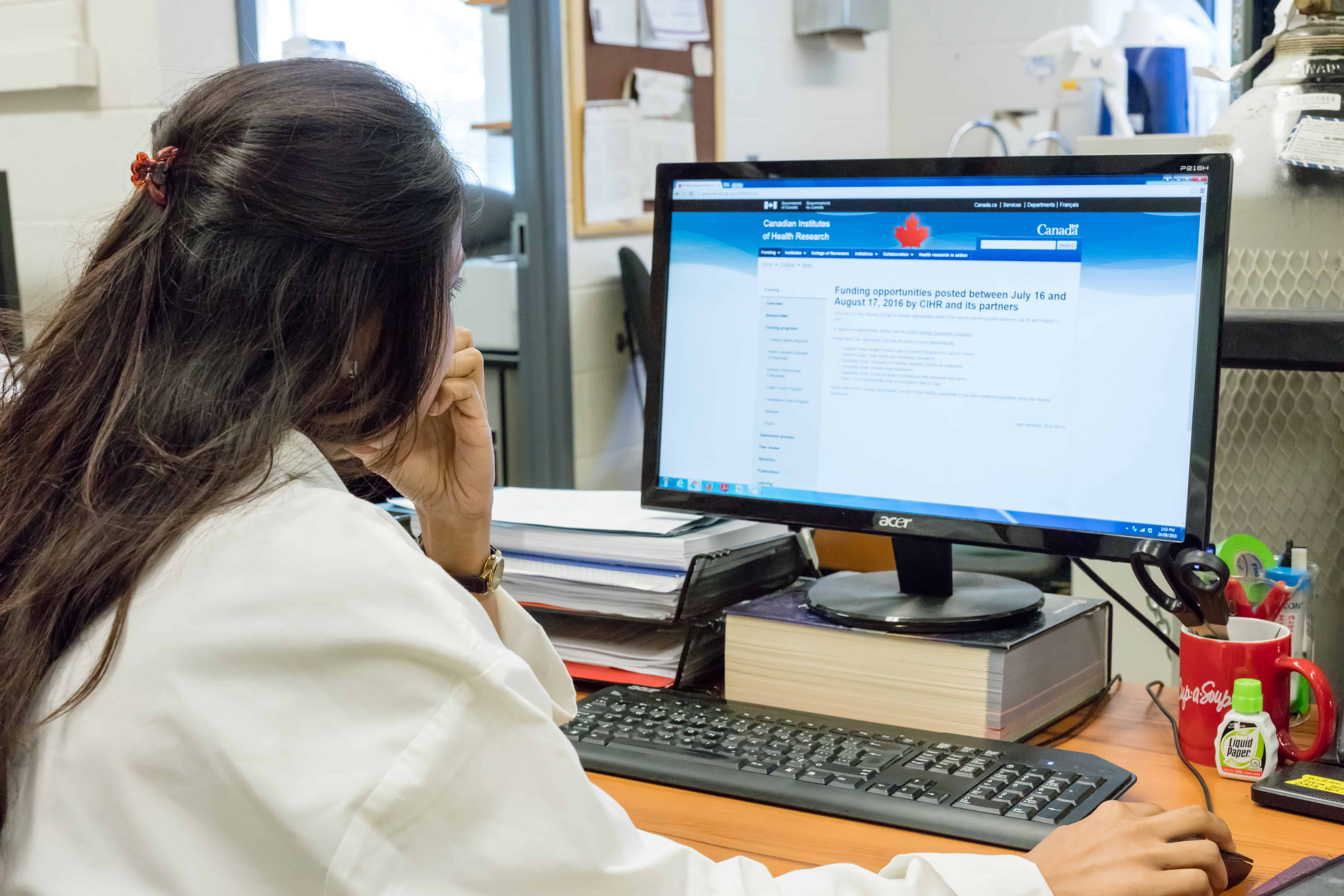[dropcap]T[/dropcap]he Canadian Institutes of Health Research (CIHR) held a Working Meeting on July 13 to rework the heavily-criticised reformations it recently made to its grant application and peer review processes.
CIHR provides $1 billion to fund health-related research every year, with three-quarters of this budget going toward “curiosity-driven” research, called “investigator-driven research,” which is conducted by independent scientists. Most of the funding that goes toward investigator-driven research is backed by the Foundation Grant program and the Project Grant program. These independent scientists must submit their proposals to CIHR, which then go through a peer review process. After the peer review process, scientists who have the “top applications” are then awarded with funding. In total, 13 per cent of applicants received funding from the Project Grant and Foundation Grant during this 2016 funding cycle.
CIHR recently made reformations to its investigator-driven research application and its peer review process process, which, according to some researchers, unfairly affected some applicants, especially women, those studying basic science, and young researchers trying to start their careers through funding.
Concern was sparked amongst researchers when the traditional in-person peer-reviewing process was replaced by electronic peer-reviewing. During the Working Meeting, it was reported that some argued electronic peer-reviewing took away vital aspects of the traditional peer review process, such as mentorship, networking, and learning opportunities for young researchers.
Peer reviewers were assigned their proposals via a computer algorithm that matched keywords. According to STAT, this algorithm sometimes assigned proposals to reviewers who were not knowledgeable enough about that specific subject to properly review it, resulting in some proposals being poorly judged and sometimes rejected simply because the reviewer was unqualified.
Due to lack of funding, CIHR cancelled two other grant contests, which led an influx of researchers applying for this grant cycle instead. This led to the peer review process being significantly slowed down and some reviewers not having enough time to complete their responsibilities. Some reviewers did not take part in online discussions or submit their reviews by the assigned deadline.
“Canceling two grant cycles to bring in these terrible reforms to the review system compounded the nightmare. Not only did [President of CIHR Alain] Beaudet destroy a very good review process, but he created massive backlog,” said Rod Bremner, a Senior Investigator at Mount Sinai Hospital’s Lunenfeld-Tanenbaum Research Institute, who applied for a CIHR grant. “But the worst thing is that tiny funding rates mean labs going out of business, and superb staff with years of training being let go. This is not good. I have no idea if we will recover,” said Bremner.
Jim Woodgett, Senior Investigator and Director of Research at the Lunenfeld-Tanenbaum Research Institute, wrote an open letter to Minister of Health Jane Pilpott, criticizing the Reforms. In the letter, Woodgett said the sudden shift to an online reviewing process “removed the peer pressure for reviewer performance,” and ultimately called for “CIHR to suspend the roll out of the Reforms and to reinstate expert panel-based reviewing where scientists meet and discuss in person.” The open letter garnered 1325 signatures as of July 20, 2016, many of them from University of Toronto affiliates, which helped spur the Working Meeting.
As a result of the Working Meeting, in-person peer-reviewing was reinstated as a second step in the peer review process. Proposals must still go through a virtual peer review process as a first stage, but 40 per cent of proposals are expected to make it into the second face-to-face peer-reviewing stage. On July 22, a Peer Review Working Group was formed, which will help CIHR launch these peer review reformations in anticipation for the next Project Grant and Foundation Grant competitions. Paul Kubes, Chair of the Working Group, announced that the Working Group teleconferenced on July 22 and July 27, and decided that the Foundation Grant competition “will proceed without changes” for the next funding cycle, while several improvements are in store for the Project Grant application and review process.
Woodgett believes a possible benefit of this revised peer review process is “reviewer accountability.” “If reviewers don’t know whether they will have to defend their reviews [during the face-to-face meeting], they are far more likely to do a responsible job,” said Woodgett. “This was one of the biggest flaws in the prior virtual process which was an unmitigated disaster.”
Bremner is “hopeful” about the new peer review process, but added, “It all hinges on having high quality chairs and high quality reviewers.”
“It is difficult to assess what the long-term impact will be but, in the short term, these events have created in a lot of turmoil and confusion amongst researchers,” said Eva Grunfeld of the Ontario Institute for Cancer Research and the University of Toronto, who was a participant of the Working Meeting. “I think we will certainly make up for lost time and regain the momentum that has characterized the high quality of Canadian research.”
Aled Edwards, Professor at the University of Toronto and participant at the Working Meeting, is also optimistic about the future of health research in Canada, especially for young researchers. “[The future] looks bright. Canada remains one of the top jurisdictions in the world to start and continue your career,” said Edwards.
Woodgett believes the health research community will recover eventually, but lamented the possible opportunities that might have been lost due to the Reforms, and expressed concern about how these recent events affected young health researchers.
“How many students saw this and changed their career plans? That’s why it is essential to restore confidence,” said Woodgett. “This is cruel, but we should thank Brexit or we’d probably have some of our best researchers making plans for the UK and Europe.”
Although some aspects of the Reforms negatively affected young researchers, Grunfeld believes it has “shone a light on the issues and specific challenges faced by young investigators.”
“The entire research community… recognize[s] that it is vitally important to build this cadre of young investigators and create an environment where the best can flourish,” said Grunfeld.


